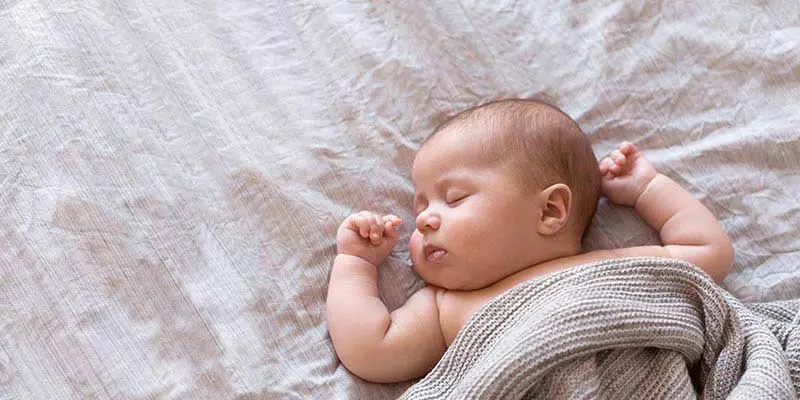
Baby Sleep Introduction
For new parents, understanding how to manage sleep for their little one can be challenging. From creating a restful environment to managing common sleep challenges, it’s crucial to establish healthy sleep habits. This guide provides practical solutions for improving sleep quality and making bedtime easier for both parents and babies.
Why Sleep Matters for Babies
Sleep is essential for your baby’s physical and mental development. Babies need sufficient rest to support their growth, memory, and overall health. Establishing a consistent sleep routine ensures that your baby gets the rest they need to thrive.
Baby Sleep Patterns by Age
Understanding your baby’s sleep needs is key to setting realistic expectations:
- 0-3 months: Expect around 14-17 hours of sleep, often in short bursts.
- 3-6 months: Babies typically need 12-15 hours of sleep, with longer stretches at night.
- 6-12 months: Most babies need 12-14 hours of sleep, including naps and longer nighttime sleep.
Handling Sleep Regression
Sleep regression can occur during developmental milestones, causing more frequent wake-ups or difficulty falling asleep. This usually happens around 4, 8, and 12 months. Stay patient and consistent with your routine as you navigate these phases.
Creating a Comfortable Sleep Environment
- Room Temperature: Keep your baby’s room at a comfortable temperature between 68-72°F (20-22°C). A cool room supports better sleep.
- Sleep Sacks: A safe alternative to blankets, sleep sacks help your baby stay warm without overheating.
- White Noise: Soft white noise can drown out household sounds, creating a calm and soothing environment for your baby.
Effective Sleep Training Methods
- Establishing a Bedtime Routine: A predictable routine signals to your baby that it’s time for bed. Activities like a warm bath, gentle rocking, or reading a story help ease your baby into sleep.
- Sleep Training Techniques: Methods such as gradual sleep training or the Ferber Method can encourage longer and more consistent sleep patterns.
Baby Sleep Safety Tips
- Safe Sleep Practices: Always place your baby on their back to sleep to reduce the risk of Sudden Infant Death Syndrome (SIDS).
- Recognizing Sleep Apnea: If you notice irregular breathing or pauses in breathing, consult your pediatrician, as these could indicate sleep apnea or other concerns.
Common Questions About Baby Sleep
- How can I help my baby sleep better?
Consistent bedtime routines and a calming environment with dim lighting and white noise can promote better sleep. - When is it safe for my baby to sleep with a blanket?
It’s recommended to wait until your baby is at least 12 months old. Before that, use a sleep sack for warmth and safety. - Is it safe for my baby to sleep on their stomach?
No, always place your baby on their back to sleep to reduce the risk of SIDS. - What should I do if my baby experiences sleep regression?
Be consistent with your routine and offer comfort. Sleep regression is temporary and typically resolves over time. - How much sleep does a 3-month-old need?
A 3-month-old generally needs around 14-17 hours of sleep, which includes both naps and nighttime sleep. - Can white noise help my baby sleep better?
Yes, white noise can help your baby sleep by masking household sounds and creating a peaceful atmosphere. - How can I tell if my baby is tired?
Look for signs like eye rubbing, yawning, or fussiness, and try to get your baby to sleep before they become overtired. - What are the signs of sleep apnea in babies?
Irregular breathing or pauses in breath can indicate sleep apnea. Consult your pediatrician for evaluation. - What is a typical baby sleep schedule?
A 6-month-old may need 12-15 hours of sleep, including 2-3 naps during the day. - Is it okay for my baby to sleep in a bouncer or car seat?
While short periods are fine, babies should sleep in a crib or bassinet on a firm, flat surface.
Conclusion
By understanding your baby’s sleep needs and creating a soothing environment, you can establish healthy sleep habits. Consistency, patience, and safe sleep practices will help both you and your baby get the rest you need for peaceful nights.
Discover Top Resources: A Curated List of Helpful Links For Your Little One
Silicone Baby Bibs: 7 Amazing Benefits for Stress-Free Mealtimes
Top 10 Must-Have Feeding Accessories for Your Baby: Essential Gear for Every Parent
Top Baby Thermometers: A Complete Guide to Choosing the Best for Your Child
Stay Connected: Follow Us for the Latest Updates and Tips!